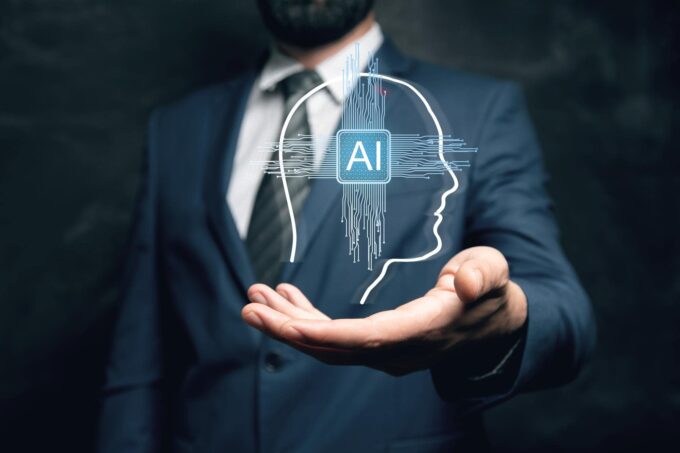In the era of big data and rapid technological advancements, artificial intelligence (AI) has emerged as a game-changing force, revolutionizing the way organizations approach decision-making. From strategic planning to operational execution, AI reshapes the decision-making landscape, offering a powerful combination of speed, accuracy, and insights.
The Rise of AI-Driven Decision-Making
The impact of AI on decision-making processes is increasingly pervasive, with organizations across various sectors recognizing its transformative potential. According to a report by PwC, AI is projected to contribute a staggering $15.7 trillion to the global economy by 2030, underscoring its significant role in driving growth and innovation.
Business Decisions
The report highlights that over 40% of CEOs rely on generative AI to inform their strategic choices, showcasing AI’s growing influence in the corporate world. Companies like JPMorgan Chase, Amazon, and Google are leveraging AI to improve decision-making processes, gain competitive advantages, and drive business growth.
AI is a true force multiplier that will enhance our decision-making processes, helping us to better serve our customers and deploy our resources more effectively. There are some specialized training programs offered by acuitytraining.co.uk, that can help businesses and decision-makers understand AI’s role, capabilities, and limitations, fostering a deeper understanding and trust in AI-driven decision-making processes.
Policy and Public Sector
Governments worldwide actively embrace AI to enhance decision-making in areas such as public safety, national security, and policy formulation. The report cites examples of supervised learning algorithms used to detect potential criminals, terrorists, and fraudulent activities, enabling proactive decision-making and more efficient resource allocation.
Bias Reduction
One of the most significant advantages of AI in decision-making is its ability to mitigate human biases and promote inclusivity. The report highlights that biased AI tools are contributing to more inclusive decisions by minimizing the impact of cognitive biases, stereotypes, and prejudices that can influence human judgment.
The Generative AI Advantage
Generative AI, with its ability to create new content, offers several compelling benefits for decision-making processes:
- Compliance: AI systems can ensure adherence to regulations, guidelines, and industry best practices, minimizing compliance risks.
- Inclusivity: By reducing human biases, generative AI promotes diversity and inclusivity in decision-making encouraging a more equitable environment.
- Efficiency: Automated processes driven by AI enable faster decision-making, allowing organizations to respond swiftly to changing market conditions and customer demands.
AI is rapidly transforming decision-making across industries, enabling organizations to make data-driven choices that drive innovation and growth.
Building Trust in AI-Powered Decision-Making

Source: technology-innovators.com
While AI offers immense potential for decision-making, building trust among stakeholders is crucial for successful adoption and implementation. The report emphasizes addressing concerns related to transparency, accountability, and ethical considerations.
Navigating Global Trust Levels
Trust in AI varies significantly across different regions and cultures, underscoring the need for organizations to understand and navigate these disparities. Cultural context plays a crucial role in shaping perceptions and attitudes towards AI, with some societies embracing it more readily than others.
To build trust globally, the report recommends clear and open communication about AI’s role, capabilities, and limitations. Transparency is key to alleviating concerns and fostering a broader acceptance of AI-driven decision-making processes.
Strategies for Fostering Trust
The report outlines several strategies for fostering trust in AI-powered decision-making:
- Explainability: Providing clear explanations and rationales for AI decisions can help demystify the process and build user confidence. Techniques like local interpretable model-agnostic explanations (LIME) and Shapley Additive exPlanations (SHAP) can aid in this effort.
- Ethical Frameworks: Establishing robust ethical guidelines and frameworks for responsible AI use is paramount. The report emphasizes the need to address concerns around privacy, fairness, accountability, and potential biases in AI systems.
- Human-AI Collaboration: Fostering a symbiotic relationship between humans and AI, where each complements the other’s strengths, can alleviate fears of job displacement and promote trust. The report highlights the importance of upskilling decision-makers to effectively collaborate with AI systems.
Addressing these key factors allows organizations to build a strong foundation of trust and a path for successful AI-driven decision-making implementation.
The Future Landscape of AI-Driven Decision-Making

Source: linkedin.com
While fully autonomous AI decisions remain relatively rare, most critical choices are already AI-informed to some extent.
- Financial Services: Companies like Ant Financial use AI to approve loans and manage wealth, leveraging advanced algorithms for decision-making.
- Technology Giants: Firms such as Facebook, Microsoft, and Netflix allocate digital content and personalize user experiences using reinforcement learning algorithms.
As AI capabilities continue to evolve, an organization’s future competitiveness will hinge not only on developing advanced AI systems but also on strategic AI utilization and effective human-AI collaboration.
- Skills Development: Decision-makers must master the art of AI-human interaction, understanding when and how to leverage AI insights effectively.
- Delegation Strategy: Organizations need to identify decision domains suitable for complete AI delegation, striking the right balance between human oversight and AI autonomy.
Comparison of AI Decision-Making Approaches
| Approach | Description | Advantages | Challenges |
| Rule-Based Systems | Decision-making based on predefined rules and logic | – Easy to understand and implement
– Consistent and predictable outputs |
– Limited flexibility
– Requires manual updates for changing conditions |
| Machine Learning | Data-driven decision-making using algorithms that learn from examples | – Adaptable to new data
– Can handle complex problems |
– Requires large, high-quality datasets
– Potential for bias and lack of transparency |
| Hybrid Systems | Combination of rule-based and machine-learning approaches | – Leverages strengths of both methods
– Increased flexibility and accuracy |
– Complexity in design and implementation
– Potential for conflicting decisions |
As organizations navigate the rapidly evolving AI landscape, choosing the right decision-making approach tailored to their specific needs and constraints will be crucial for success.
Addressing Challenges and Mitigations

Source: onceinteractive.com
While AI offers numerous benefits for decision-making, it is essential to address potential challenges and implement appropriate mitigations.
Tackling Data Bias
Implementing processes to detect and address biases in training data is critical to ensure fair and unbiased AI decisions. Evaluating model fairness using metrics like disparate impact and equalized odds can help identify and mitigate discriminatory outcomes.
Enhancing Explainability
Adopting interpretable algorithms like decision trees and LIME (Local Interpretable Model-Agnostic Explanations) can improve transparency and explainability. For complex black box models, techniques like SHAP (SHapley Additive exPlanations) and counterfactual explanations can shed light on decision rationales.
Real-World Success Stories
AI’s impact on decision-making is already evident across various industries driving innovation and transforming traditional practices.
Healthcare
- Diagnosis and Treatment: AI is revolutionizing medical diagnosis and personalized treatment plans, leveraging vast amounts of patient data and medical knowledge.
- Drug Discovery: AI accelerates drug discovery pipelines by identifying potential drug candidates, optimizing molecules, and predicting therapeutic outcomes.
Financial Services
- Algorithmic Trading: AI-driven trading strategies analyze vast amounts of market data, identifying patterns and making informed trading decisions in real-time.
- Credit Scoring: AI enhances credit risk assessment by analyzing complex financial data, enabling more accurate and efficient lending decisions.
As these success stories illustrate, AI’s potential in decision-making is vast, and its impact will continue to grow as the technology evolves.
Embracing the Future of AI-Driven Decision-Making

Source: ascend.io
As the world becomes increasingly data-driven and complex, the role of AI in decision-making processes will continue to grow. Organizations that embrace AI-powered decision-making while addressing challenges like trust, bias, and ethical concerns will gain a competitive edge.
By fostering human-AI collaboration, adopting ethical frameworks, and leveraging the power of AI responsibly, organizations can unlock new levels of efficiency, innovation, and growth. The future of decision-making lies in harnessing the combined strengths of human ingenuity and AI capabilities, ushering in a new era of data-driven insights and informed choices.
Frequently Asked Questions
How secure is AI-driven decision-making?
AI security is paramount, and organizations must implement robust measures such as encryption, regular audits, and vulnerability assessments to safeguard against breaches and unauthorized access.
Can AI replace human intuition?
While AI augments human intuition with data-driven insights, it does not entirely replace it. The synergy of human intuition and AI capabilities yields optimal decision-making outcomes.
What about ethical concerns surrounding AI?
Ethical considerations are vital when deploying AI for decision-making. Organizations must navigate biases, fairness, privacy, and accountability issues to ensure responsible and trustworthy AI implementation.



